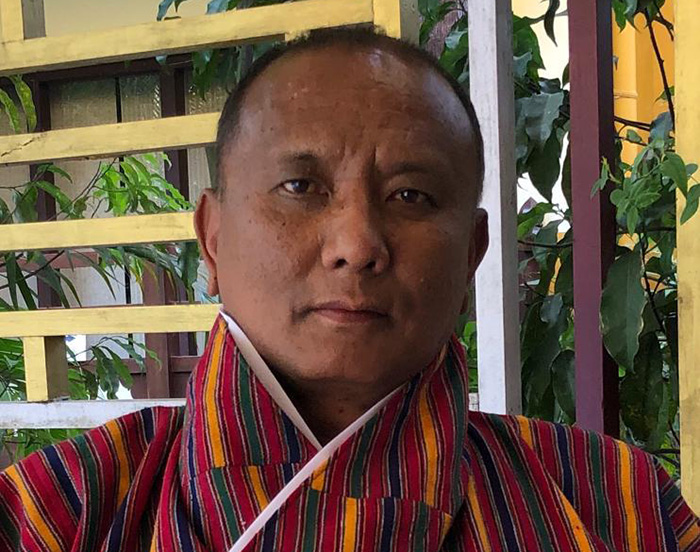Attorney General Shera Lhundup shares his five-year experience with Office of the Attorney General to Kuensel after demitting office on May 21
Five years as the Attorney General. What’s been the experience like?
With a brilliant set of rising attorneys to work with, five years just flew like yesterday! My initial tenure with PDP government was demanding and cannot help but wonder if another AG will enjoy working with such a law abiding government. Then my remaining tenure with DNT government was thrilling one. It’s been a great honored to find Office of the Attorney General (OAG) at the centre of each democratic government.

Former AG Shera Lhundup
During your tenure, some high profile cases like Lhakhang Karpo reconstruction project, JPLP tax evasion, Trongsa land case were dropped arousing suspension in the mind of people that you were pro-government as the AG. Comment?
All cases are subject to due process. We often forget that AG is the chief public Jabmi and it is his duty to defend government against any suit, prosecute criminals and restitute public properties taken unduly by individuals. It is quite a dichotomy to suspect AG as being progovernment as it insinuates unfairness which deviates rule of law. We laid it bare in the public domain all the facts, circumstances and evidences of each case. Not a single call from any quarters tried to influence our decisions. Unless it is a case of thief thinking all others are thieves, OAG conducted transparently with professional integrity.
How difficult it is to be the state prosecutor, especially when you have to represent the elected government that you have fought against?
At times, circumstances get humorous. You really don’t know who you’d end up working with. Hence, do it as per law and fairly is the best policy. None of the present cabinet members even implied of any discomfort working with me. One come to realise that it was an independent court that made decision on the contested issues. Tips? Get along with what matters with agility.
The first Attorney General also experienced same challenges during the past two governments. What would be your suggestion to the government to avoid such difficulties in future?
We need not look at every odd instance as difficulty. If you are wrong then the denial of it doesn’t make you right. After all, who is right or wrong is decided by an independent institution, not the adversarial parties.
How many cases forwarded by the ACC are yet to be registered before the courts of law? Critics and even the investigation agency say that OAG takes months and even years to review some cases. Reasons?
As of May 21, we have 37 ACC cases and 324 RBP cases undergoing prosecutions at various levels of courts. We have 18 ACC and 37 RBP cases under active review. Present Covid-19 situation had lot of adverse bearing on time. It takes time to professionalise and systematize review and prosecution efficacies.
There is a general feeling that the public is losing confidence in the judiciary. What do you suggest judiciary should do to reform the judicial system and promote its transparency?
It is easy for a wayward to criticize but difficult to provide solutions to fix what you criticise. But one may suggest to simplify due process, stop default appointments of judges, open up judicial officer selection pools to encourage performance; encourage use of virtual and teleconferencing facilities to ease summons distress; interface hearing schedules and cradle-to-grave electronic case monitoring system; develop periodic trainings for both judges and bench clerks to refresh them with updates; and take hard decision to exemplify intolerance to corruption/moral turpitude or incompetence. Intelligent techno-harnessing is the solution to efficacies.
Do you think that the ‘Green Bench’ instituted at the High Court is serving its purpose? Why?
The instances of environmental cases filed annually should speak for its relevance and purpose.

